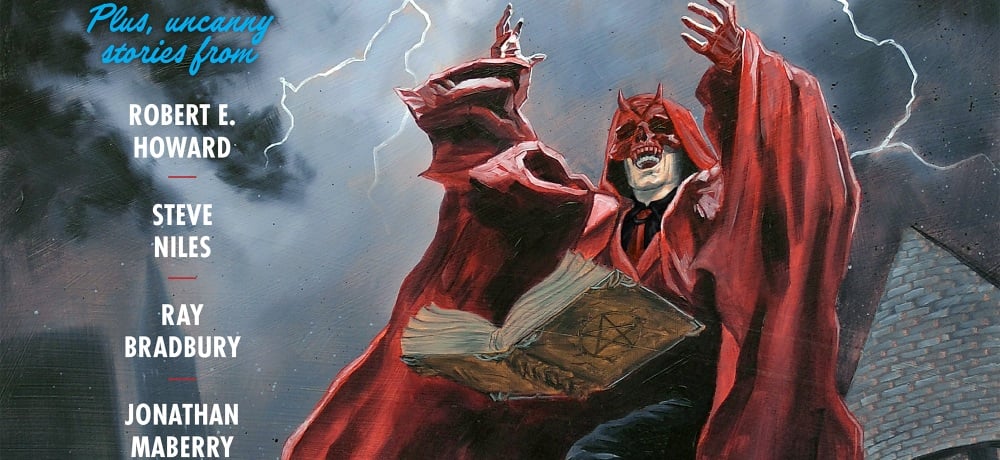






Horror that skews to a younger audience is a tricky proposition: where is the line between appealing to their budding sensibilities and traumatizing them forever? It’s a fine one for sure, but the ‘80s were built for the young, with the MTV and the glowing clothes and the disaffected suburbanites (just ask Rush); it was a playful decade culturally, and horror plugged directly into that adolescent electricity with The Gate (1987), a hellzapoppin’ tale of friendship, family, metal, and jaw dropping satanic trolls.
Released by New Century Vista Film Company mid-May in North America, the Canadian made film was a surprise hit, bringing in nearly $14 million against a $2.5 million budget. The critics liked it too, especially heaping praise on its very impressive stop motion and forced perspective work, courtesy of Randall William Cook (Fright Night). But technical wizardry aside, The Gate deserves a lot of credit for tapping into childhood fears and adolescent anxieties in a way that’s palatable to that very core group.
We open as one of our protagonists, Glen (Stephen Dorff – Blade), is in the middle of an anxiety riddled dream; he can’t find his parents anywhere, so he heads to his treehouse, an act that culminates with lightning striking it down. He awakens to find that his parents are in fact removing the huge tree from the backyard, and a geode is unearthed which brings by his best friend Terry (Louis Tripp - Gate II), a metalhead with a heavy interest in backwards masked rock records.
When Glen’s folks leave him in the care of his older sister Al (Christa Denton – 8 Million Ways to Die) for the weekend, he and Terry suspect something odd is afoot; it certainly doesn’t help that ancient incantations are scribbled on a child’s erasable notepad, or that Glen levitates at a party Al is hosting, or that Terry dreams his dead mom visits him before turning into Glen’s dog, which also wakes up dead. Add in a couple of spells from the liner notes of Terry’s fave band Sacrifyx, and you have an instant recipe for kid based disaster; that is, if being attacked by six inch demons from the abyss, undead utility workers, and one Lovecraft inspired monster are your idea of disaster. Will the kids be able to reverse the spell and close…well, you know.
One of the best things about The Gate is it gives the kids agency; frequently seen as pawns for peril at screenwriters’ whims, the kids here and in another mid-decade standout, The Monster Squad (also ’87), are not ornamental side characters to be thrust at danger, but rather the rightful heroes of the story who stand front and center. Writer Michael Nankin (Midnight Madness) and director Tibor Takacs (I, Madman) tap into universal childhood fears; Glen’s nightmare of abandonment at the start becomes reality, there are monsters under the bed (in your closet, in your head), and being marginalized are all fed through the dread mechanism.
All of this unfolds at a pace that perhaps some modern viewers may disdain; much of the first half of the film is given over to setup, yet the characters are so likeable and relatable that you don’t mind waiting for the fantastic to happen. By the time the mini-demons crawl up from the ground to lay waste to Glen’s home (and anyone who gets in their way) you’re already well invested in the kids’ plight, following them through every lunkhead manoeuvre and poor decision. (Why should adults corner the market on stupidity?) Would any of this happen without Terry reading the lyrics from The Dark Book album? Nope. Does conjuring the underworld result in anything but mayhem? Not that I’m aware of. But this doesn’t chafe the filmic cranium as much because you expect tykes to be impetuous and irrational; unlike us (allegedly) grown up types who should know better, Glen and Terry’s curiosity comes across as charming and funny as opposed to grating and eye rolling.
It’s the performances of the three leads – Dorff, Tripp, Denton – that pull you through that first half; I’m especially fond of Dorff’s moody Glen, teetering on the cusp of adolescence with a perfect mix of surly and lonely, desperately clinging to his childhood obsession of model rockets as if it has a higher purpose. And because The Gate is all about youth empowerment, it most certainly does.
As the dust has long since settled, most people remember it for the effects work, and specifically Cook’s stop motion demonic darlings. They are a sight to behold; whether multiplying and scurrying in Glen’s bedroom or biting Terry’s ankles as he tries to climb from the backyard pit, the little scamps are filled with Harryhausen hoodoo. Craig Reardon (The Funhouse) and crew’s work is less celebrated, but a dissolving face and (what seems like) a nice tribute to Peter Cushing’s Grimsdyke character from Tales from the Crypt (1972) are equally impressive. Things don’t get too messy, though.
Nor do they need to. Like a comedian who won’t play “blue”, The Gate shows that horror can be effective without going for the grossout, and is a perfect gateway (sorry, don’t hate me) film for aspiring terror tykes to take in, and for us older ones to appreciate. I mean, I still check under my bed now and again, don’t you?
The Gate is available on Blu-ray as part of the Vestron Video Collector Series.
Next: Drive-In Dust Offs: GREAT WHITE (1981)